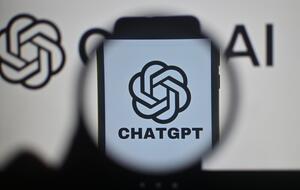Their responses went totally undetected and outperformed those of real students, a new study has shown.
The project involved creating fake student identities to submit unedited answers generated by ChatGPT-4 for take-home online assessments in undergraduate courses.
Of the 33 entries, only one was flagged by the university's markers, who were unaware of the project.
The remaining AI-generated answers received higher than average grades compared to actual students.
Authors of the study highlighted their findings demonstrated AI processors – such as ChatGPT are now capable of passing the Turing test – the ability to pass undetected by experienced judges, named after computing pioneer Alan Turing.
Dr Peter Scarfe, an associate professor at Reading’s school of psychology and clinical language sciences, said about the AI exams study: “Our research shows it is of international importance to understand how AI will affect the integrity of educational assessments.
“We won’t necessarily go back fully to handwritten exams, but the global education sector will need to evolve in the face of AI.”
The study was billed as the “largest and most robust blind study of its kind”, and warned of major implications for how universities assess students.
It concluded: “Based upon current trends, the ability of AI to exhibit more abstract reasoning is going to increase and its detectability decrease, meaning the problem for academic integrity will get worse.”
Experts reviewing the study called it a death knell for take-home exams or unsupervised coursework.
Professor Karen Yeung, a fellow in law, ethics, and informatics at the University of Birmingham, said: “The publication of this real-world quality assurance test demonstrates very clearly that the generative AI tools freely and openly available enable students to cheat take-home examinations without difficulty to obtain better grades, yet such cheating is virtually undetectable.”
The study suggests universities could incorporate AI material generated by students in assessments.
Professor Etienne Roesch, another author of the research, added: “As a sector, we need to agree how we expect students to use and acknowledge the role of AI in their work. The same is true of the wider use of AI in other areas of life to prevent a crisis of trust across society.”
Professor Elizabeth McCrum, Reading’s pro-vice-chancellor for education, indicated the university is “moving away” from using take-home online exams and developing alternatives that apply knowledge in “real-life, often workplace-related” settings.
She was quoted in The Guardian saying: “Some assessments will support students in using AI, teaching them to use it critically and ethically; developing their AI literacy and equipping them with necessary skills for the modern workplace. “Other assessments will be completed without the use of AI.”
In the study’s endnotes, the authors suggested they might have used AI to prepare and write the research.
They stated: “Would you consider it ‘cheating’? If you did consider it ‘cheating’ but we denied using GPT-4 (or any other AI), how would you attempt to prove we were lying?”
A spokesperson for Reading confirmed to The Guardian the study was “definitely done by humans”.





